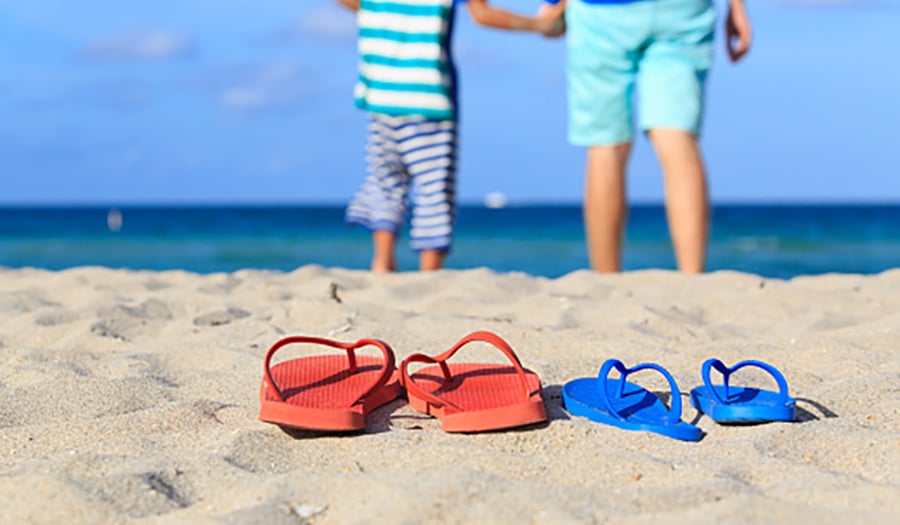Those who do not suffer from diabetes have probably never thought about those who need to take special care of their feet when they vacation on the beach.
The worst thing is that many of the people who do suffer from it are also unaware of the importance of taking certain measures and precautions in relation to their feet. A lack of care can even result in limb amputation, and that’s not an exaggeration.
Diabetes causes neuropathies (nerve damage) and poor blood circulation in those who suffer from the disease. Neuropathy causes a loss of sensation in the feet, so it is less sensitive to pain in case of injuries (cuts, infections, blisters, etc.).
If you or someone you know is diabetic, it is very important to be aware of the risk and carry out the following measures, although they may seem somewhat over the top – they are not:
• Never walk barefoot on the beach or in the pool area to avoid being cut with broken shells or broken tiles or get burned feet on the sand or pool tiles.
• Take care in the water. The risk of cuts and injuries does not disappear once in the pool or sea. There may be shells, broken tiles ... try not to step on the bottom when you get into the water (or use special water shoes) and generally be aware to avoid any pitfalls.
• Keep feet elevated. With the heat the circulatory problems are accentuated. Therefore, in order to reduce swelling it is advisable to put them in an elevated position which is always good to do in any case several times a day.
• Be very careful with the sun. The insteps are often forgotten areas that can suffer sunburn. Extreme care must be taken to avoid sunburn.
• Hydrate your feet carefully. Don’t rub in the cream too firmly and always use a gentle lotion, avoiding applying it between the fingers.
•Emergency kit. Wherever you go on vacation, don't forget to bring your emergency kit, with antiseptic cream, sterile bandages, plasters...
• Feet at high risk? The so-called diabetic foot (the result of alterations in the sensitivity and irrigation of the arteries we have seen) is one of the greatest risks faced by those suffering from diabetes. If you are at a higher risk, it is important that you talk to your doctor and follow all of their instructions carefully.
• Stay hydrated. With high temperatures it is easy to dehydrate. Apart from the general benefits of good hydration, we must not forget that it minimizes the swelling of the extremities.
César Vargas
Journalist



